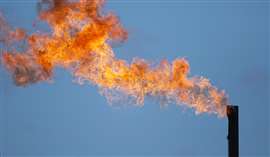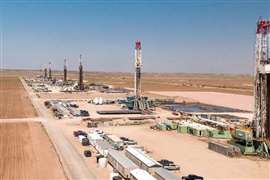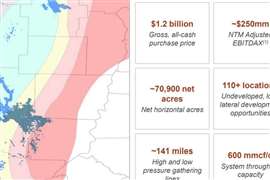Read this article in 中文 Français Deutsch Italiano Português Español
EU advances methane regulation
November 16, 2023
Regulation calls for measuring, reporting methane emissions
The European Parliament and Council have agreed on a proposal to reduce energy sector methane emissions in Europe and in our global supply chains.
It will oblige the fossil gas, oil and coal industry to properly measure, monitor, report and verify their methane emissions according to the highest monitoring standards, and take action to reduce them. The agreement comes just a few weeks ahead of COP28, where the EU will continue its engagement with international partners on reducing methane emissions.
This provisional agreement now requires formal adoption by both the European Parliament and the Council. Once this process is completed, the new legislation will be published in the Official Journal of the Union and enter into force.
The regulation aims to stop the avoidable release of methane into the atmosphere and to minimize leaks of methane by fossil energy companies operating in the EU.
- It requires operators to report regularly to the competent authorities about quantification and measurements of methane emissions at source level, including for non-operated assets;
- It obliges oil and gas companies to carry out regular surveys of their equipment to detect and repair methane leaks on the EU territory within specific deadlines;
- It bans routine venting and flaring by the oil and gas sectors and restricts non-routine venting and flaring to unavoidable circumstances, for example for safety reasons or in case of equipment malfunction;
- It limits venting from thermal coal mines from 2027, with stricter conditions kicking in after 2031;
- It requires companies in the oil, gas and coal sectors to carry out an inventory of closed, inactive, plugged and abandoned assets, such as wells and mines, to monitor their emissions and to adopt a plan to mitigate these emissions as soon as possible.
The EU imports a large share of the oil, gas and coal it consumes. This regulation will also tackle the methane emissions related to these imports.
 An EU regulation under consideration would ban routine venting and flaring. (Image: NASA)
An EU regulation under consideration would ban routine venting and flaring. (Image: NASA)
It establishes a methane transparency database where data on methane emissions reported by importers and EU operators will be made available to the public;
- It requires the Commission to establish methane performance profiles of countries and companies to allow importers to make informed choices on their energy imports;
- The Commission will also put in place a global methane emitters monitoring tool and a rapid alert mechanism for super-emitting events, with information on the magnitude, recurrence and location of high methane-emitting sources both within and outside the EU. As part of this tool, the Commission will be able to request prompt information on action to address these leaks by the countries concerned;
- As of January 2027, the Regulation requires that new import contracts for oil, gas and coal can be only concluded if the same monitoring, reporting and verification obligations are applied by exporters as for EU producers. The Regulation will set out a methane intensity methodology and maximum levels to be met for new contracts for oil, gas and coal.
These new transparency obligations on international partners will inform the EU’s bilateral and multilateral dialogues with global energy partners. Over 150 countries have committed to reduce their methane emissions by signing up to the Global Methane Pledge with the aim of reducing methane emissions by 30% by 2030, and this tool will help us to work with partners to achieve these important goals.
The EU Methane Regulation for the energy sector was proposed in December 2021 as part of the proposals to deliver the European Green Deal. This is the EU’s first-ever legislation to curb methane emissions in the energy sector. The legislative proposal followed the EU Methane Strategy adopted in 2020.
CONNECT WITH THE TEAM









